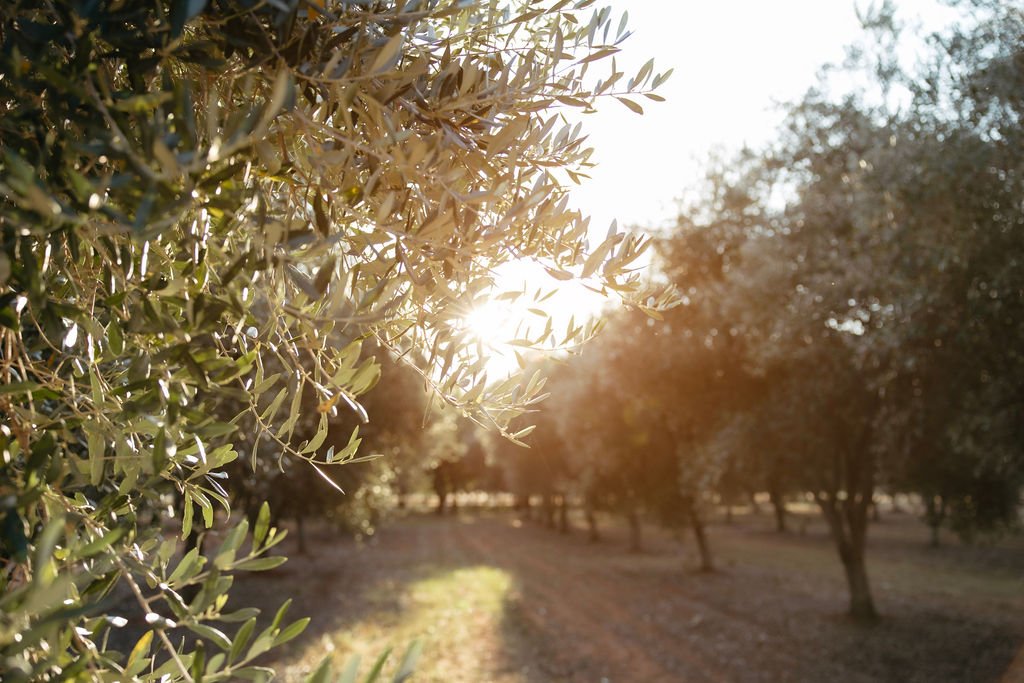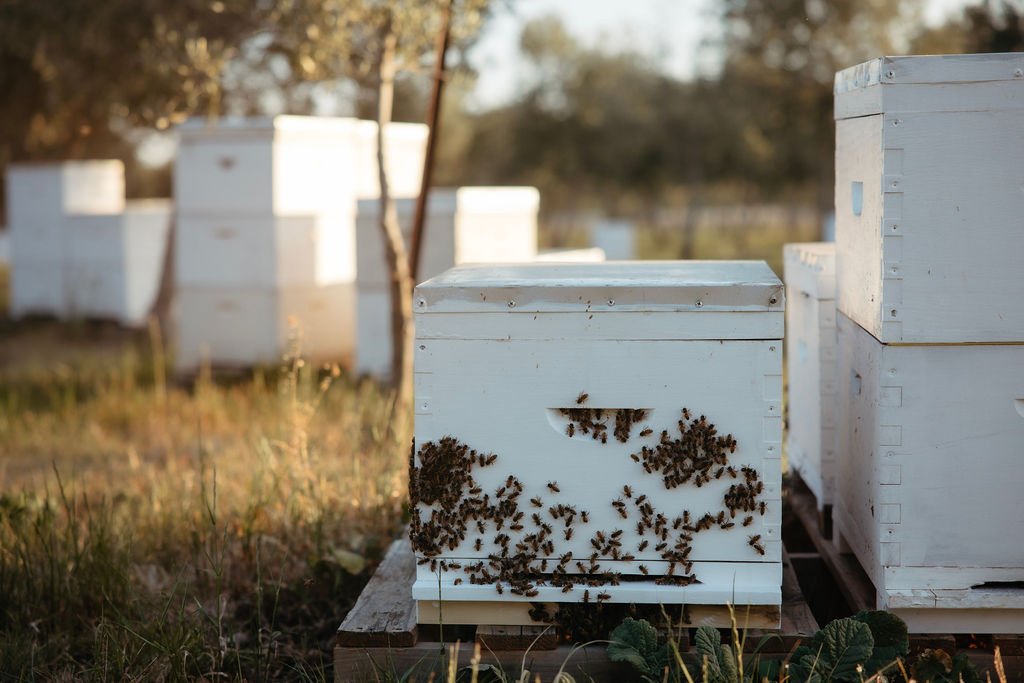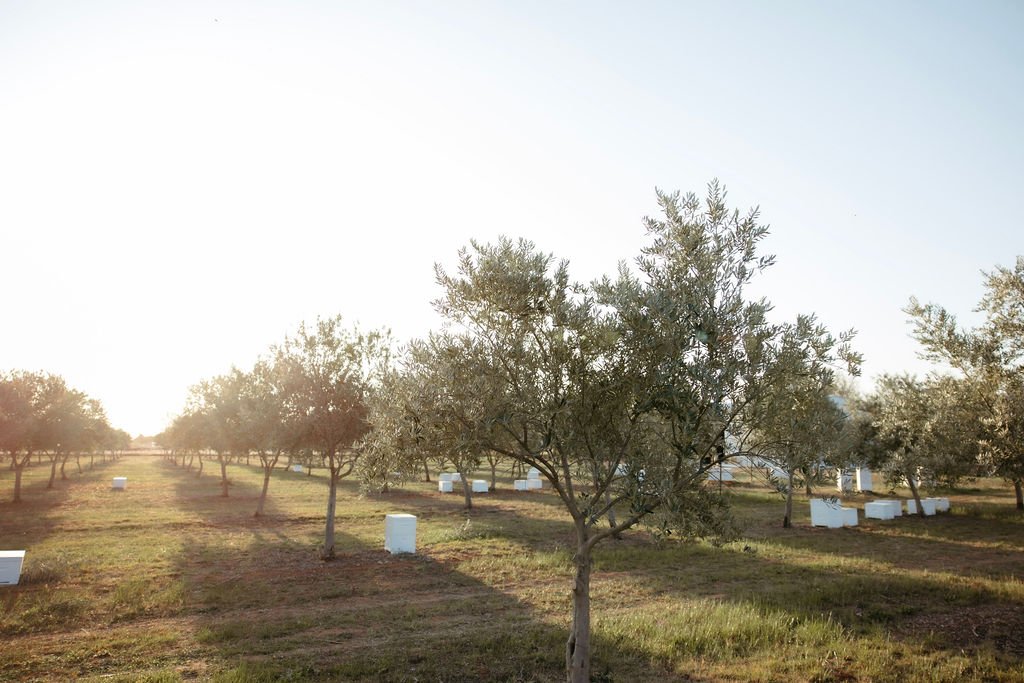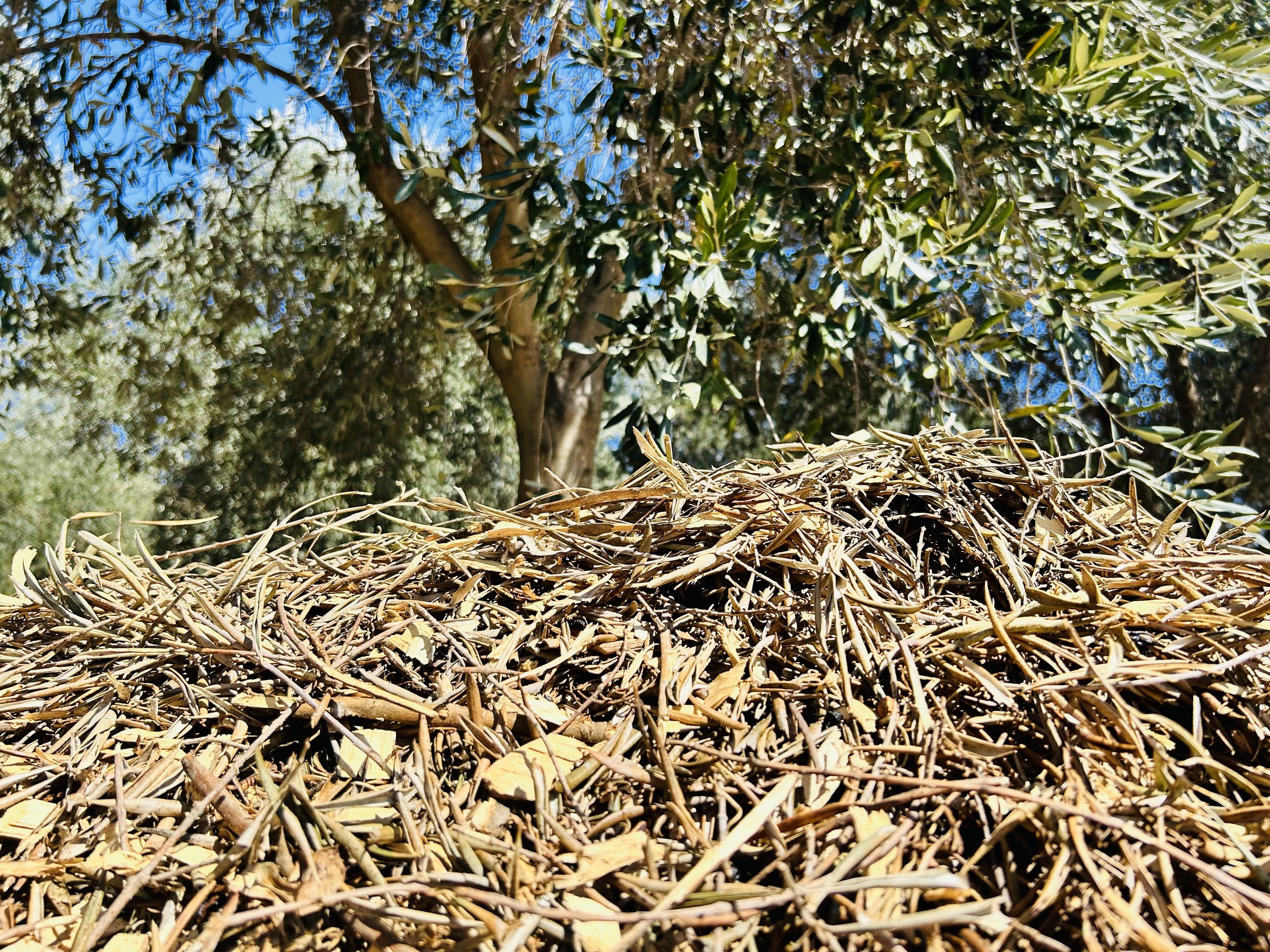
Beyond carbon
Any sustainable production process in the 21st century is defined by its carbon footprint and climate goals.
For us, this posed two questions which made us start at the end:
How do we get to carbon neutral?
What do we do with our waste?
We run a sustainable carbon sink.
Olive oil is the only global oil crop that is recognised as having a carbon ‘sink’ effect (or carbon sequestration). For every ton or 1,000L of olive oil we produce, the trees in our grove fix approximately 10T of CO2 in the soil and biomass, absorbing more atmospheric CO2 than they produce.
Other benefits of our grove include enhanced biodiversity, habitat protection, creating employment, allowing our family to live and work on country, improving health and, with our solar system, providing access to clean and affordable energy.
Make no mistake: olive oil is both healthy and good for the environment.
The sun is our friend.
Sitting at 32.23S, 148.24E, and just 238m above sea level, our groves in western New South Wales are blessed (or, to some, cursed) with loads…and loads of warm and reliable year-round sunlight.
Our mill (and our entire farm) is powered by a big 27kW solar system and nearly all of our equipment (including our forklifts and even our chainsaws!) is battery powered.
Surplus power generated by the system is returned to the grid and recharging is a breeze.
And it’s free.
We recycle and reuse all of our waste.
Besides olive tree pruning, our other main source of waste is the biomass generated during the processing of the fruit. After the olive oil is produced, around 80% of the original fruit material remains as byproducts and wastes in the form of leaves, olive pomace (a semi-solid byproduct containing olive skin, pulps and pits), and wastewater.
All of the branches and leaves from pruning are mulched and spread under our olive trees and all of our milling byproducts and waste are recycled back into the soil.
The result? These are highly valuable ongoing soil-conditioning processes that enrich the soil through sustainable recycling of organic matter, suppress weeds and reduce water evaporation.
2027: beyond carbon
We know we already operate a sustainable olive oil business that is better than carbon neutral but we haven’t completely eliminated carbon from the equation. At least, not yet.
The last remaining carbon factor in our production process is, of course, our larger diesel machinery. We already operate late model Deutz Fahr tractors with Tier 4 standard engines (reducing particulate emissions by more than 90%) but by 2027, we plan to be at the forefront of a monumental shift in agriculture and primary production in Australia and to get onboard with battery powered EV tractors.
As we shift to tractors powered by the sun, we will be generating and using all of our energy from up above. And Wilson Family Olives will be beyond carbon.




